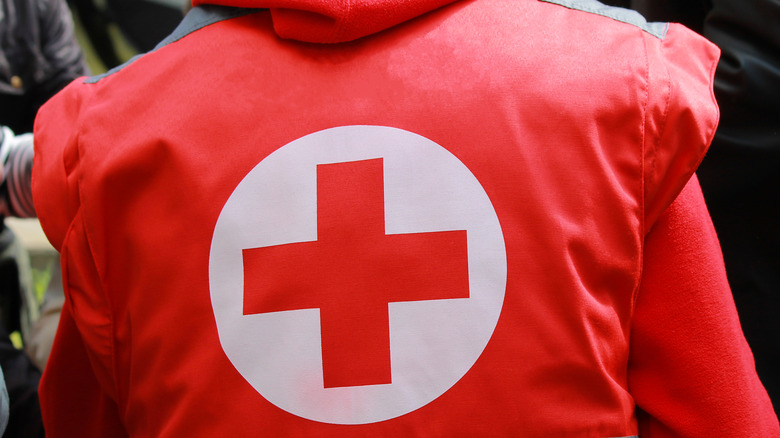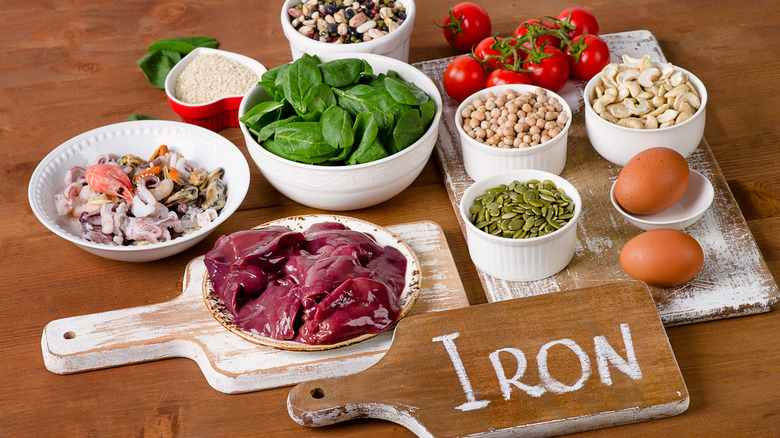You Should Avoid These Foods If You're Giving Blood
While donating blood is considered to be relatively safe and can help save lives, there are some side effects that can occur, such as fatigue and anemia (via Healthline). Luckily, there are steps you can take to help prevent these side effects. This includes staying well-hydrated and choosing the right foods to eat before giving blood.
First, you'll want to avoid fatty foods like French fries, hamburgers, baked goods, and ice cream. These foods can negatively affect tests administered on your blood and may prevent you from being able to donate. Additionally, when giving blood, it's important you have enough iron. If you lose too much of this important mineral through blood donation, it can lead to iron deficiency anemia. Be aware that certain foods and drinks like coffee, tea, red wine, chocolate, milk, cheese, and yogurt can block the absorption of iron in the body. You do not have to avoid these foods entirely, but you shouldn't eat them at the same time as foods that are rich in iron or when taking iron supplements.
Foods to eat before giving blood
For a successful blood donation, the American Red Cross recommends eating a nutritious, well-balanced diet rich in both iron and vitamin C. There are two types of iron found in foods (via Healthline). The first is heme iron, which is easily absorbed by the body. Foods rich in heme iron include meat and animal products like beef, turkey, chicken, lamb, pork, and liver. The second type is non-heme iron, which is not absorbed by the body as easily. However, if you do not eat meat, non-heme iron can still be a good source of this vital nutrient. Foods that contain non-heme iron include tofu, beans, lentils, iron-fortified breakfast cereals, bread, pasta, raisins, and eggs.
If you're consuming plant-based iron, vitamin C can help the body absorb non-heme iron more effectively. A number of fruits are rich in vitamin C, including kiwi, mango, papaya, cantaloupe, pineapple, strawberries, blueberries, raspberries, cranberries, watermelon, and tomatoes. Finally, since about half of the blood you donate is water, it's important to be well-hydrated. The American Red Cross recommends drinking an extra 16 ounces (2 cups) of water or a nonalcoholic beverage before your appointment.


